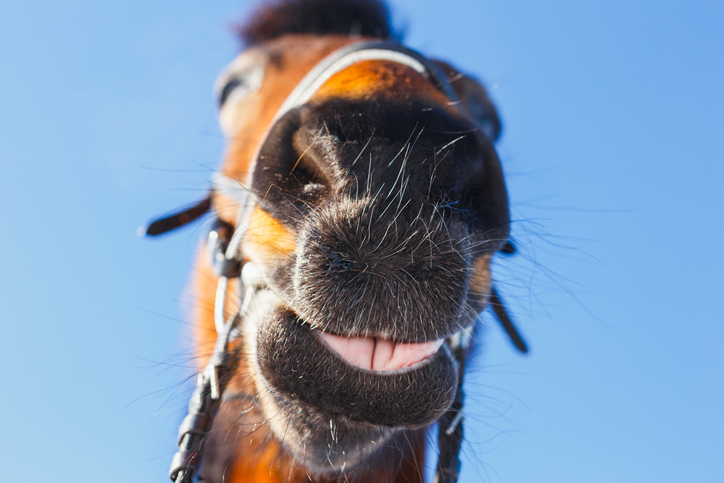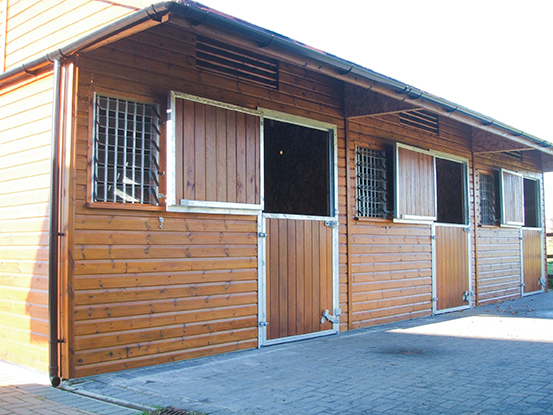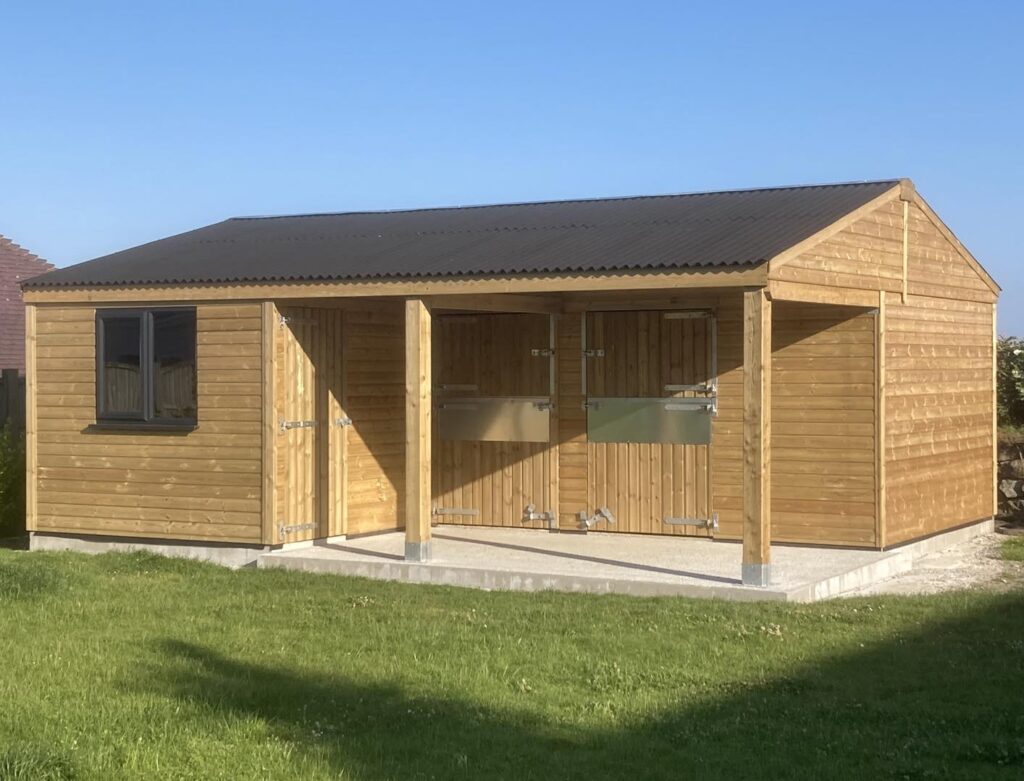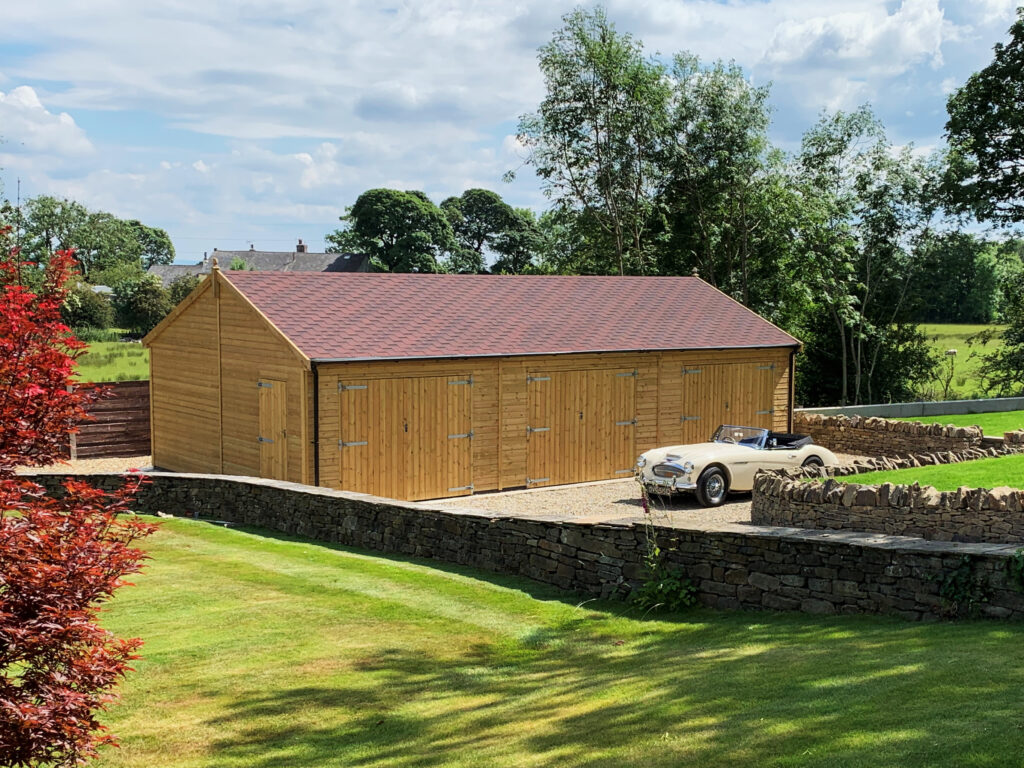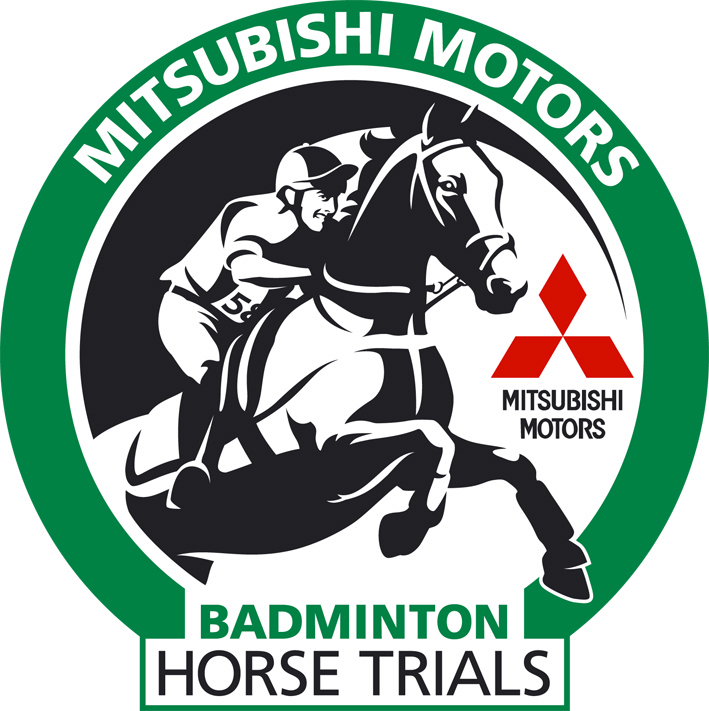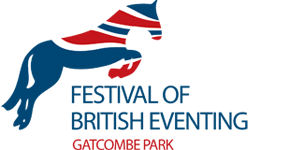Our domesticated horses have changed the way they chew their food. In the wild, horses are used to chewing forages where the lateral excursion, (sideways motion), is larger, but in our domesticated horses, this movement can be reduced. This can lead to the tooth surface getting worn out quicker, causing irregular sharp enamel edges which can be very uncomfortable.
Dissimilar to human teeth, a horse’s teeth continuously erupt throughout its life. Various problems may occur, including appetite and weight loss and poor performance, but these can all can be easily avoided with routine checkups.
Therefore, it is very important to practice regular and proper care of your horse’s teeth. According to the British Association of Equine Dental Technicians, up to 70% of horses are left with undiagnosed dental problems, and many owners do not realise that their horses are suffering in silence. A routine dental examination comes with numerous benefits improving their overall wellbeing. Your horse will be more comfortable, which promotes their general health, productivity and they may even live longer.
How to care for your Horse’s Oral Health – Signs and Prevention
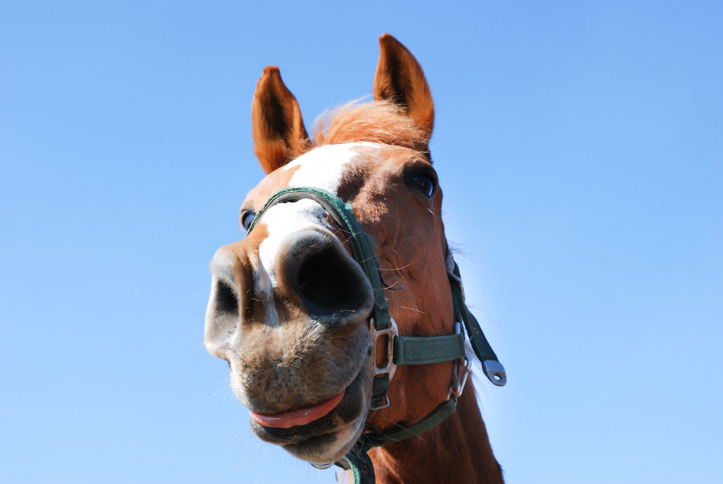
Common signs of dental problems
Your horse may demonstrate a clear sign of dental problems; however, in some cases, they may show no obvious sign whatsoever. Sometimes this might be mistaken for irritation and bad behaviour. To avoid this, it is recommended to follow through with periodic dental examinations.
A visible sign of dental diseases in your horse may include an unwillingness to drink water and being slow while chewing, maybe stopping every few minutes and starting again. They may regularly hold their head on one side showing discomfort. Additionally, your horse will ‘quid’, this is when they form partially chewed food into a ball and spit it out. Your horse may also swallow their food without chewing it; this can cause problems such as indigestion and even choking and can be detected in their manure. Other signs include head tossing, drooling, foaming and swelling of the face, jaw and mouth tissue, demonstrating odd ways of chewing, bad odour from mouth and nostrils, and bleeding from the mouth. If you notice any of these signs, we recommend calling your vet as soon as possible.
Dental health for young horses
Many believe that horses do not need dental care until they reach middle age, which is not the case. The abnormalities can be detected in very early stages and if not looked after, this can become a more significant issue when they get older. Like humans, horses also get two sets of teeth. Horses lose their milk teeth, otherwise known as deciduous teeth, by the time they are nine months and will be replaced by a full set of permanent adult teeth by the age of 5. At this stage, you may notice missing a tooth and gaps in their mouth where the tooth was before; this is completely normal.
However, it is important to be aware of some of the problems that may arise. The baby tooth sometimes may not shed and even break sitting lodged in the gum, and the adult tooth may erupt incorrectly in the wrong place, causing pain and infections. Therefore, vets recommend monitoring and having your horse examined every six months at this phase. If these abnormalities are unnoticed or left untreated, this can result in more serious problems. This routine examination means veterinarians can detect such conformational abnormalities early and correct them while the horse is still young, avoiding any future occurrences of oral diseases.
Dental care for adult horses
Annual oral exams are very important for your adult horses as it allows the veterinarian or a qualified teeth technician to carry out preventive work to avoid future complications. This routine dental maintenance, known as “floating”, is performed to remove sharp enamel points. Along with this, other maintenance care such as minor rebalancing and troubleshooting is recommended every eight to twelve months.
Dental care for senior horses
Like younger horses, senior horses will require regular examinations more often. Older horses are more prone to dental problems, but they will endure the pain until it gets severe, making it impossible for them to keep on eating; hence observation is essential. If the horse has been looked after with regular checks throughout its life, they may only suffer from the gradual wearing of the teeth. However, untreated malocclusions and other dental diseases can result in periodontal disease, known as Equine Odontoclastic Tooth Resorption and Hypercementosis (EOTRH). This causes inflammation, infections and increases the likelihood of loose and fractured teeth which can eventually lead to tooth loss.
Some common symptoms:
- Horses may be reluctant and struggle to grasp harder food. They may use their lips instead than their teeth to grasp other food.
- Headshaking and even some change in behaviour
- Constantly salivating and infected tooth roots with small red dots above their gumline
- Poor appetite and weight loss
- Resistant to being handled and getting their mouth examined
Nevertheless, when these symptoms do arise and are recognised early, an ongoing dental care treatment can often successfully ease the pain and discomfort for your horse.
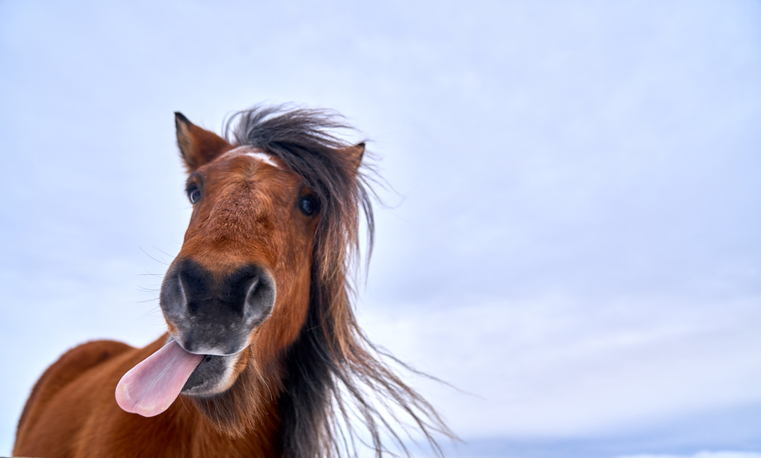
Regular monitoring and annual Dental care can be essential to you horses’ well being and ensuring that they live a long comfortable life. Your horse will be healthy, happy and eating well, so be sure to regularly monitor and book in annual dental examinations for your horses.
Are you looking for mobile shelters and stables for your horses? Head over to Jon William Stables expert advice or give us a call now on 01380 850965.
